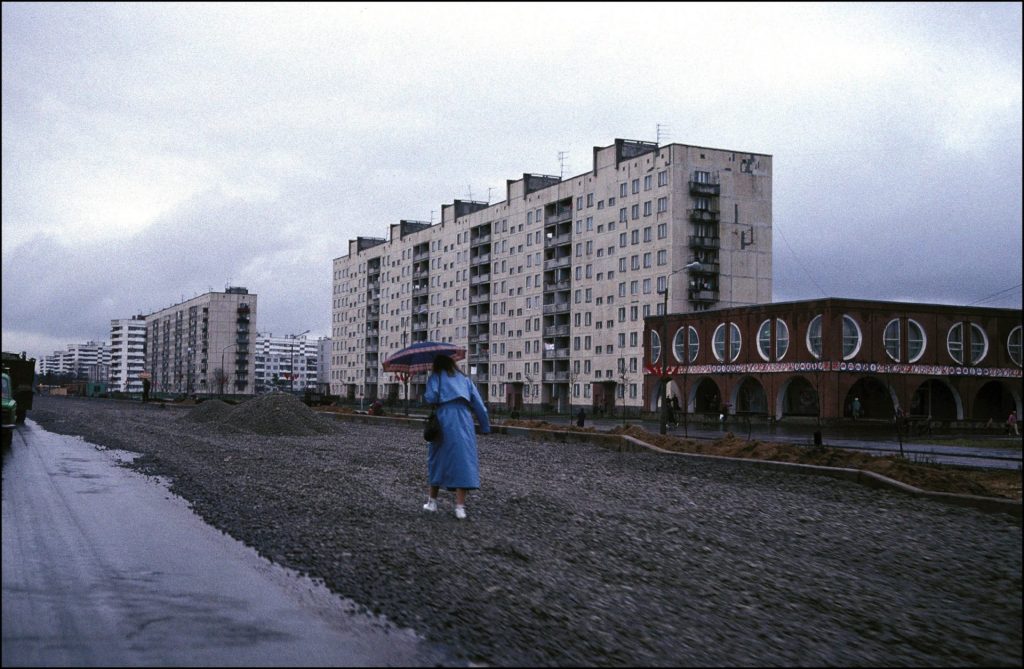Estonia’s post-independence president Lennart Meri had a plan. His country, recently liberated from 50 years of Soviet rule, was going digital. But when he told IBM executives what Estonia could afford for digital government, they fell about laughing.
Humiliated, Meri turned to his staff: “Right, fuck it. We are going to build our own,” he told them. From that moment came a revolution. Estonia, tiny, poor and under centuries of serial occupation until 1991, has since grown to fame as the most electronically capable country in the world or, as a new book documenting this rise calls it, The Full Digital Nation. And influential consultancy Brand Finance recently pronounced Estonia to be the world’s fastest-growing “nation brand”.
“With some of the leading economies having their digital shortcomings highlighted by the pandemic, Estonia’s digital-first model should be the one to follow,” said the Brand Finance report. Over the years, world leaders from Germany’s Angela Merkel to Japanese premier Shinzo Abe have beaten the path to its door, attending summits in Tallinn and seeking advice and inspiration from the nation of 1.3 million that’s become a pathfinder for the online government capability to which every nation aspires.
In Estonia – or e-stonia, as it’s been dubbed – you can set up a business, apply for licences, get benefits and choose the next president in no time at all, all from your mobile phone.

Children have been systematically schooled in coding for years, part of a digital education syllabus established in 1998. While Americans still argue about postal voting, Estonians pioneered online voting in 2005. Almost all Estonians were filing tax returns online, in minutes, in 2007, compared with several hours it still takes currently in the UK. Some 99% of government services are online. You only really need to turn up in person to marry, divorce or buy property.
“It’s a country as a service. You save so much time on bureaucracy – that’s priceless,” Violaine Champetier de Ribes, author of The Full Digital Nation, told me. She moved from France to Estonia last year, and slashed the time she spent running her companies. “My stress levels went down so much.”
Estonia was well prepared for lockdown, with little disruption to government services and a near-seamless transition to home-working and remote education. A government-backed online hackathon led to a chatbot answering public queries and a platform matching volunteers with those in need.
It’s also a fertile environment for tech entrepreneurs. So far, Estonia claims seven tech unicorns (billion-dollar start-ups), including gambling software company Playtech, digital ID firm Veriff and money transfer app Wise – the highest per capita rate anywhere. Video call pioneer Skype was founded in Tallinn in 2003 with Estonian software developers. Many successful start-ups involve at least one ex Skype co-founder.
“Skype had a huge effect,” Champetier de Ribes explained. “They realised they could provide services to the world from their tiny country. Nobody knew that before.”
For a place that’s become a buzzword for global tech, this Baltic nation is surprisingly free of the sleek, monochrome futuristic tropes of popular imagination. Tallinn is medieval and pretty. Much of the country is rural. There’s none of the whizzy pretension of Silicon Valley.
That’s rather the point, government digital adviser Marten Kaevats said. What is futuristic is the vision: an e-state based on convenience, practicality and invisibility, with hundreds of government services accessed easily with a single, blockchain-backed digital I.D. – pragmatic, quiet, dull and life-transforming. “What we do is mostly legal and procedural things – the boring stuff,” Kaevats said. Governments will never be at the cutting edge of innovation, so the digital project involves “very simple things” based around identity verification and data safety.
“This has almost nothing to do with technology and everything to do with being a mindset and a culture that is open,” continued Kaveats, who has helped and advised several countries, from Vietnam, Chile, Canada, several African nations and the European Union, to emulate Estonia.
The digital ID works because it is mandatory. Without wholehearted participation, neither government nor the private sector – which work in partnership – would properly develop the system, the argument goes. There’s one logon and password for the whole lot. In the UK public services online, around a hundred different sites each have their own logon.
Estonians have no patience with such complexity. Prime minister Kaja Kallas, a former MEP, has described her shock when faced with a thick booklet of forms for her tax return in Brussels: “I was like, do people really do this? I felt sorry for Belgians.”
Others may look in admiration now, but nobody envied Estonia in the 1990s. Before the Second World War, its GDP per capita was higher than many larger states, including Finland, Ireland and Spain. It emerged from communism with its economy worth a fraction of the others. “After five decades we just had Soviet crap; bad roads and a telephone system from the 1930s, it was not a pretty picture,” former president Toomas Hendrik Ilves said. “We were looking at the situation and asking ourselves: ‘How are we going to get out of this?’”
Ilves, foreign minister under Meri, had learned computer programming in the US as a teenager and argued that the new World Wide Web could help level the playing field.
Here, communism actually helped. The Soviet Institute of Cybernetics had been in Tallinn. The city was swarming with newly unemployed computer geeks with strong experience in space technology.
Almost immediately, technology was put into primary schools under a project called Tiger Leap, despite worries it would harm traditional learning. Now, Estonian teenagers regularly top European PISA (Programme for International Student Assessment) education rankings in maths, reading and science.
Sparsely populated, with no natural resources, Estonia had to evolve with the global market in mind. To attract foreign money, an e-residency system was created, allowing anyone to set up businesses within the EU state without setting foot there. Around 4,000 Britons became e-residents, many after Brexit. The first-ever e-resident, in 2014, was former Economist senior editor Edward Lucas, praising what he saw as a low-cost, proven, scalable, innovative, user-friendly and transparent system. Others include venture capitalist Tim Draper and several heads of state.
Artemy Troitsky, a leading Russian music critic and academic living in Tallinn, told me enthusiastically: “We almost never deal with bureaucracy – a very pleasant contrast to countries like Russia where you have all kinds of bureaucracy, red tape and bribery.”
The next step is integrating Artificial Intelligence for automated services such as job searches, medical services, registering births and delivering benefits. Nobody should elaborately beg for things they’re entitled to, Kaevatz said. “Most people don’t understand the language or how the complex procedures work. You have to go to offices and speak to people who are boring and use strange acronyms, and figure out how to enter this maze.”
AI will eliminate this effort, saving both time and money for government and citizen alike.
A drone system monitoring farmers’ compliance with EU rules for mowing grass cost €100,000 to build and saved €650,000. The government says digitisation adds 2% to annual GDP.
But what’s to stop AI being hacked or going rogue and invading Russia? The answer is “distributed architecture”.
Data is “distributed” into separate digital compartments that can be locked off from each other. The driving registry knows what licence and car you have, but not your name and address – that’s in the population registry, with your health details somewhere else entirely.
When you use it, the dots connect, but only briefly. Someone would need access to hundreds of different, unconnected parts of the system simultaneously in a minuscule timeframe to have enough data worth hacking. In addition, punishments for offenders are severe. A doctor who viewed his ex’s health data was barred from the profession. Everybody sees who looks at their data, so snooping is quickly discovered.
The system works because Estonians are computer-literate, educated, easy-going and trust their democracy. With almost evangelical zeal, they can’t see why anyone wouldn’t want the same. All age groups e-vote, the elderly date online. But when I speak to Turkish and Greek friends, they fear misuse and bribery. A French friend worries about privacy, while a Brit, scarred by expensive government tech failures, won’t believe it works. A German MEP calls e-voting “reckless”.
Troitsky says Russia’s latest elections saw many violations precisely because of electronic voting: “In countries like that, where there actually is a Big Brother, all the online stuff can make people very paranoid.”
Estonia has actually been hacked. In 2007, several websites went offline, including those of parliament, ministries, newspapers and banks. They blamed Russia, boosted cyber-security and currently withstand around 300 monthly “cyber incidents”. E-residency misuse has been linked to cryptocurrency fraud.
But Estonia isn’t put off. Its architects clearly see Estonia’s technological landscape as a philosophical project, a values-based “third way” against the two dominant Big Brothers – China’s government and profit-driven US Big Tech.
A good European system is vital, they say, with a strong focus on privacy, security, utility, control, genuine choices and variety of content.
Anything else would “fuck the world up like Facebook,” said Kaevats.




